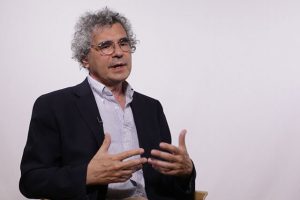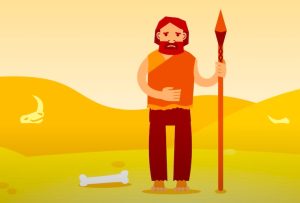Philosophy of Economics
Philosopher Daniel Hausman on rationality, John Stuart Mill, and austerity
I would like to speak to you about the virtues. About good and bad in context of science. We are constantly thinking of virtue talk as religious only, as something you hear only on Saturday or on Sunday at the church, or the temple, or the mosque. And then the preacher says, “Be good, be good”. But virtues are more fundamental than just Sunday, Saturday, Friday. Virtues are essential for a society or an economy to work well. There is a modern conviction, a version of which comes from economics, which is that the virtue of self-interest, of prudence, of profit, is enough. We in the United States say, “Greed is good”. And we think the professors of economics have told us this. And some of them do. Some of them say, “All that you need for an economy to work well is people who pursue profit singlemindedly. I do not care whether there is slave labor or anything”. And that is wrong, I have concluded. I once thought this was true. I was once a marxist, and marxism is a version of this, then I became a Chicago school economist, and Chicago school economy is another version of this, and then I grew up.
Finally I have realized that prudence only – prudence being the virtue of profit making, and taking care of yourself, and selfishness – it is a virtue. We want people to take care of themselves, we want our children look both ways when they cross the street. We want people to be competent. But if that is all we tell them to do, we do them and ourselves and the society a great disservice. We damage the society.
There is this cynical modern view that all you need is prudence, which I believe is deeply wrong. Not just from the Sunday morning preacher’s point of view, but sociologically, and economically, and politically.
To understand this you have to get beyond the theories of goodness, that arose in Europe in the 1700s. You have to get beyond Jeremy Bentham’s utilitarianism, which says precisely that prudence is all you need. That all other virtues – love, justice, temperance, courage, and faith – all can be reduced to self-interest. And you even have to get beyond Kant who tries to reduce everything to justice alone. Bentham is prudence alone, Kant is justice alone. Neither of them work.
The ancient tradition in the West, and indeed in the East – in South Asia, in East Asia – is to name the virtues. Name the good ways of being a human. Aristotle, who in the West is the source of this, says that there are four virtues: courage – the chief virtue of a military society, such as the Ancient Greek polis, because they were at war all the time; justice – namely, treating other people as they should be treated; temperance – which is self-control; and then prudence. Those four are called in the tradition of the West the “cardinal virtues”. Courage, justice, temperance, and prudence.
Then added to them what are called the “theological” virtues or the Christian virtues. This strange combination of the four and the three if you put them together constitute a pretty good philosophical psychology. And the three “theological” virtues are faith, hope and love. And love is the greatest of these. There you are – four and free. I say that they are “Christian” virtues, but it does not mean, alas, that Christians are very good at practicing them. They hate as much as other people do, instead of love, and they are hopeless, when hope is a great virtue, and they are without character or faith as much as other people. But still because of the history they are called Christian or theological.
You will think now that we are back to talking about Sunday morning, we are back to religion. No, you can give these three virtues an entirely secular interpretation. Hope is the virtue of having a project, having a place to go. And if you do not have hope, if you are truly hopeless, you go home this afternoon and hang yourself. Please, do not – that is bad for you. Faith is the virtue of having an identity: being a Russian, or a woman, or a daughter, or an educated person. Hope is forward-looking, faith is backward-looking. It is where you come from, as opposed to where you are going. But love is the great virtue of valuing. There is love in the human sense: I have a dog, his name is Will Shakespeare, and I love my dog. That is more φιλία [philia], as the greek say, “friendship”, so to speak. Rather than what the Greek said ἀγάπη [agape], the higher love. But in any case, those three virtues do not necessarily have to do with church, or Islam, or anything else. Here we have four and three.
These are pretty good in accounting of what a flourishing human being needs. A flourishing human being cannot do with prudence alone, or with justice alone. If you have no courage, you are like Oblomov, the hero in a Russian novel, you stay in bed all day. It turns out, if you think about these named virtues, behind which in all societies including ours there is a library of books, poems, and psychological experiments, all of them tending to say, “This is what a human needs, a full human life”. If you think that way, then the various 1700s reductions of humans to maximizing, or justice, or one or the other do not work. And the danger is that you will think there is certain of those single virtues elevated to all virtue. That has been very bad for people.
If you elevate courage and faith, and that is all you do, then you have fascism. If you elevate justice and hope – that is socialism. If that is all you do – that is an unbalanced bad human life. And it is an unbalanced bad human society.
What do we need as humans? I do not mean that I am saying we should need, but I am saying we do need them. It is all seven of the virtues in some special idiosyncratic form that each of us has. I have known in my life five Catholic nuns well. And all five of them were having in their own way great human lives. And I have known a couple of soldiers well. And these two men that I know were having their own version of a good human life. But all these people had all seven of these virtues in action in some way.
So the argument I am making in all my three books that I have written in the last 10 years. The trilogy is called “The Bourgeois Era”. In all three of them I am arguing that the modern so-called “capitalist” society (although I do not like the word) has to be liberal in the root sense. It has to be a society for free people or it does not work well. And all seven of these virtues need to be encouraged.
The scientific discovery in social science in the 1700s, was that the connection between individuals and the society in terms of virtues is not one to one. That is you can have a bunch of good people and have a bad society. Or you can have a bunch of bad people and have a good society. That was the discovery of Mandeville, and earlier Hobbes, and Montesquieu, and Adam Smith contributed to this. But in a way that discovery was a mistake. Because in fact for the good society you cannot have uniformly bad people. You cannot have people who think that prudence is the only virtue. You cannot indeed have people who think that hope and justice (the ideal socialist society) are the only virtues that matter. If you do that, we have discovered in the sad history of the 20th century, it ends in Stalin or Hitler. So what we need in our economy is not this harsh “prudence only” in our society, not “justice only” in our daily lives. We need a balance, as classical Chinese, Hindu, Greek and Roman philosophies said, of all seven of these virtues.

Philosopher Daniel Hausman on rationality, John Stuart Mill, and austerity

Philosopher Dennis Bonnay on metamathematics, set theory, and the Gödel's theorem

Historian David L. Carrasco on violent practices of the Aztecs, the purpose of human sacrifice, and the select...